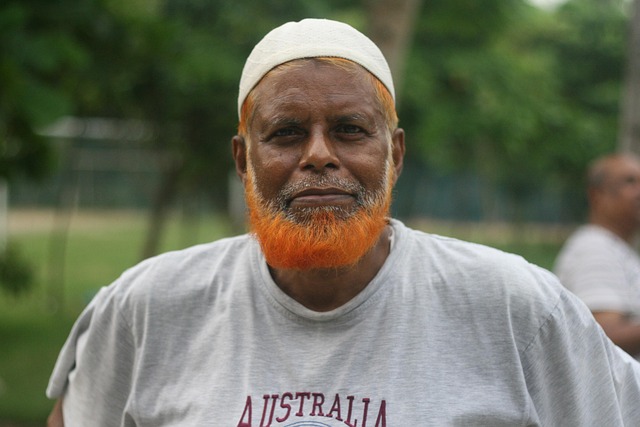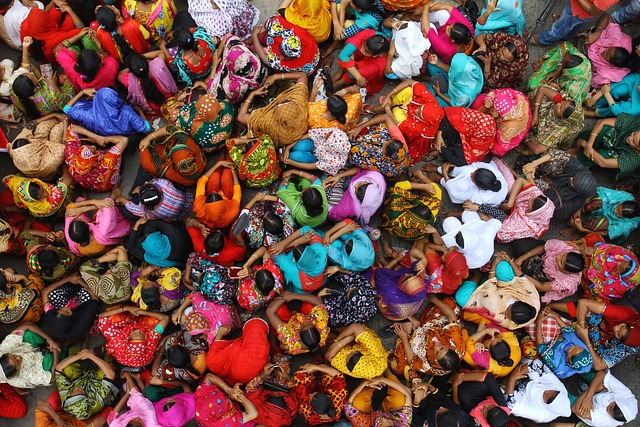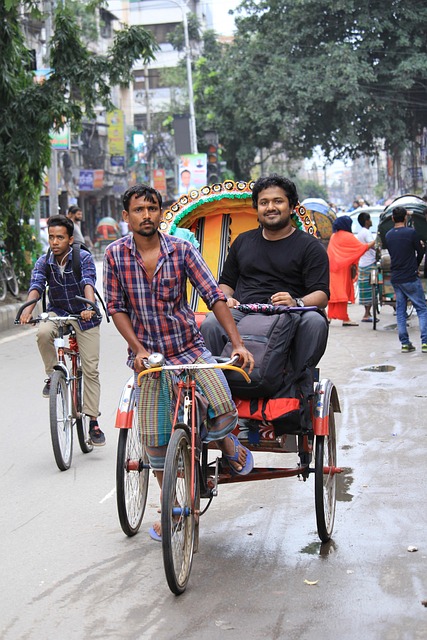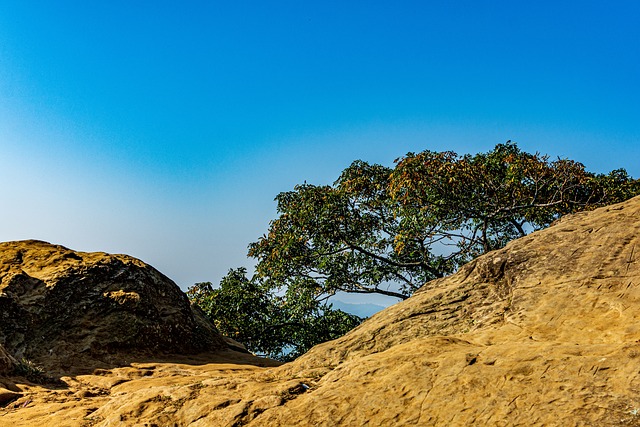Bangladesh, a culturally rich nation with diverse landscapes and traditions, offers vibrant festivals showcasing its history and architectural evolution. Active listening is key to fostering mutual respect among locals, travelers, and tourists, breaking language barriers. Non-verbal communication, including gestures and eye contact, holds deep cultural meaning. Open dialogue, empathy, and learning Bengali facilitate cultural exchange. Supporting local communities through arts, crafts, farming, tech, and music contributes to a meaningful connection with Bangladesh's rich heritage.
“Exploring respectful cultural exchange in Bangladesh requires a nuanced approach, as the country boasts a vibrant tapestry of diverse communities. This article delves into best practices for meaningful interactions, focusing on understanding Bangladesh’s rich cultural diversity. We highlight the importance of active listening and non-verbal communication etiquette, encourage open dialogue with empathy, and offer practical steps to support local communities. Embracing these principles fosters authentic connections, enhances cross-cultural relationships, and leaves a positive impact in Bangladesh.”
- Understanding Bangladesh's Cultural Diversity
- Active Listening: A Cornerstone of Respect
- Embracing Non-Verbal Communication Etiquette
- Promoting Open Dialogue and Empathy
- Supporting Local Communities: Practical Steps
Understanding Bangladesh's Cultural Diversity

Bangladesh is a vibrant nation known for its rich cultural heritage and incredible diversity. With bangladesh’s diverse landscapes: rivers, delta, and hills, each region boasts unique traditions, languages, and customs. This cultural mosaic is deeply intertwined with the country’s history, shaping its social dynamics and everyday life. An in-depth look at agriculture practices and their role in the culture reveals how farming communities have contributed to the development of regional specialties and festivals that celebrate the bounty of the land.
Moreover, exploring in-depth look at Bangladesh’s historical city for advanced learners culture offers a glimpse into the nation’s past glory. Cities like Dhaka, with its blend of modern architecture and ancient sites, showcase the evolution of Bangladeshi society. When visiting us at festivals of bangladesh: colors, sounds, and traditions anytime, travelers can immerse themselves in this cultural tapestry, fostering mutual understanding and appreciation for the diversity that makes Bangladesh truly special.
Active Listening: A Cornerstone of Respect

In any cultural exchange, active listening stands as a cornerstone of mutual respect. Bangladesh, rich in its diverse communities and vibrant festivals like those reflecting colors, sounds, and traditions, demands this practice to foster genuine connections. When engaging with locals or fellow travelers, truly hearing their perspectives—without judgment or interruption—sows the seeds of understanding and appreciation for each other’s unique backgrounds and experiences. This simple yet powerful act transcends language barriers and strengthens the foundation for meaningful interactions.
In light of the above, an analysis of gender equality efforts and achievements for advanced learners youth can offer valuable insights into Bangladesh’s progress towards inclusivity. By actively listening to stories and perspectives from various walks of life, including intermediate travelers who uncover lesser-known travel destinations, we gain a deeper appreciation for the country’s cultural tapestry. So, whenever you visit us at analysis of gender equality efforts and achievements for advanced learners youth anytime, remember that active listening is not just a skill but a badge of honor in navigating Bangladesh’s rich landscape of cultures.
Embracing Non-Verbal Communication Etiquette

In Bangladesh, non-verbal communication plays a significant role in cultural exchange. A simple gesture or facial expression can convey respect, hospitality, or even disagreement. For instance, bowing slightly when greeting someone is not just a polite act but also signifies appreciation for their culture and customs. Eye contact is generally appreciated, though it’s important to note that direct eye contact in some contexts may be considered disrespectful. Understanding these nuances can greatly enhance your interactions with locals, making your experience more meaningful during your in-depth look at Bangladesh’s historical city for advanced learners or while on a culinary journey through authentic Bangladeshi dishes for intermediate learners.
When visiting religious sites or attending cultural events, being mindful of personal space is crucial. In many Bangladeshi contexts, physical touch is generally avoided unless among close friends or family. Additionally, dressed-up locals may expect similar respect when visiting your homeland. Remember that these practices vary across regions and individuals, so always observe and adapt to local customs. If unsure, give us a call at study of healthcare delivery systems for beginners; local guides and residents are usually eager to share their knowledge. Similarly, while exploring the country’s vibrant art scene or navigating through its diverse tourism options, these non-verbal etiquette tips will not only foster better connections but also deepen your appreciation for Bangladesh’s rich cultural heritage.
Promoting Open Dialogue and Empathy

In Bangladesh, fostering respectful cultural exchange begins with promoting open dialogue and empathy among diverse communities. Engaging in meaningful conversations allows individuals from different backgrounds to share their perspectives, traditions, and stories, enriching mutual understanding. Encouraging active listening and respect for differing viewpoints creates an environment conducive to cultural appreciation rather than conflict. The works of Rabindranath Tagore, celebrated in both poetry and prose, serve as a national pride and can facilitate these exchanges by offering insights into the Bengali spirit and values.
Learning the national language, Bengali 101, is another crucial step towards connecting with locals and understanding the nuances of Bangladeshi culture. This linguistic bridge enables deeper engagement during visits, whether exploring the natural wonders of Bangladesh—from protecting its precious mangroves to preserving its vibrant rivers—or delving into local traditions. Moreover, immersing oneself in these experiences fosters empathy by allowing travelers and residents alike to connect on a human level, appreciating the shared humanity that transcends borders. Visit us at [focus on environmental conservation efforts in Bangladesh technology] anytime to experience these cultural exchanges firsthand and contribute to sustainable practices that preserve Bangladesh’s rich heritage for future generations.
Supporting Local Communities: Practical Steps

Supporting local communities is a cornerstone of any meaningful cultural exchange in Bangladesh. Visitors and participants should look beyond the surface to understand the complex social fabric. One practical step involves delving into the rich history and techniques of Banglesdeshi crafts literature and supporting artisans directly. By purchasing their creations, you not only contribute to their livelihoods but also foster a deeper appreciation for traditional arts. Engaging with local farmers, especially those involved in rice cultivation, offers another avenue. Rice is more than just a staple; it holds cultural significance, connecting people to the land and traditions passed down through generations.
In addition, exploring the emerging tech scene and its impact on Bangladesh’s future health can be eye-opening. Local startups are often driven by a desire to solve real-world problems within their communities. Participating in or supporting these initiatives not only contributes to the country’s technological advancement but also strengthens your connection with the people and culture of Bangladesh. For those interested in music, visit us at traditional Bangladeshi music: instruments, styles, and performances anytime to experience firsthand the vibrant soundscape that has evolved over centuries. These interactions enrich cultural exchange by promoting mutual understanding and respect.
In Bangladesh, where cultural diversity thrives, fostering respectful exchange is paramount for enhancing community connections. By practicing active listening, adhering to non-verbal communication norms, encouraging open dialogue, and empathizing with local communities, visitors can engage authentically while respecting the rich tapestry of traditions and customs that define this vibrant nation. These best practices serve as a guiding light, ensuring cultural exchanges that leave both parties enriched and empowered.
